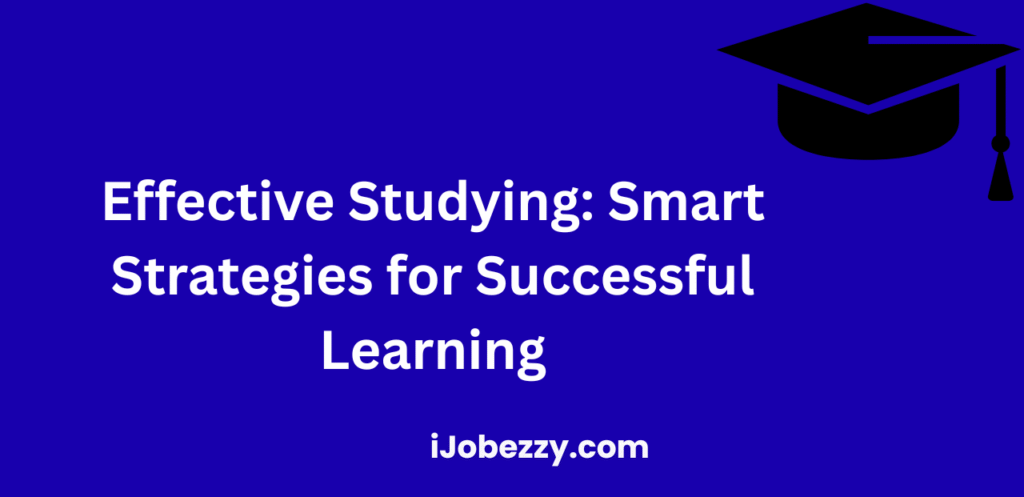Studying effectively isn’t just about spending more hours with your books—it’s about using your time wisely, staying engaged, and applying practical techniques that lead to real understanding and long-term memory. Smart Strategies for Successful LearningWhether you’re new to university-level study or looking to improve your approach, adopting the right study strategies can make a significant difference.Smart Strategies for Successful Learning
Key Principles of Effective Studying
Be Actively Engaged
Keyword: active learning
Passive reading leads to boredom and forgetfulness. Instead, stay mentally involved:
- Ask yourself questions as you study.
- Identify main points and arguments.
- Link ideas across topics to build deeper understanding.
- Make learning interactive and reflective.
Spaced Learning Over Time
Keyword: spaced repetition
Avoid last-minute cramming. Instead:
- Break study sessions into smaller chunks over days or weeks.
- Mix up topics (known as interleaving) to strengthen retention.
- Combine with self-testing to reinforce memory.
Useful resources:
- Spaced Learning [PDF / Word]

Active Note-Taking and Summarising
Keyword: note-taking techniques
Don’t just copy—process information: Smart Strategies for Successful Learning
- Summarise arguments using grids, tables, or concept maps.
- Link parts of a topic and add relevant examples or case studies.
- Aim to construct meaning from your notes.
Useful resources:
- Note Restructuring [PDF / Word] Smart Strategies for Successful Learning
Self-Testing
Keyword: exam preparation, memory recall
One of the most powerful learning tools:
- Test yourself regularly from memory.
- Use flashcards, mock questions, or teaching others.
- Leave time between learning and summarising for deeper processing.
- Don’t just recall—use and apply the material in meaningful ways.
Useful resources: Smart Strategies for Successful Learning
- Ways to Self-Test [PDF / Word]
Building Focus and Productive Routines
Minimise Distractions
Keyword: focus strategies
Create the right environment:
- Choose a dedicated study space.
- Turn off notifications or use apps to block distractions.
- Set clear intentions for each session.
Use the Timer Method
Keyword: time management, Pomodoro technique
Stay productive with timed intervals:
- Work for a focused 25-minute block.
- Take a 5-minute break.
- Repeat 3–4 times before taking a longer break.
Explore more tools here:
- Time Management Resources
Manage Your Reading Strategically
Keyword: academic reading skills
Don’t read everything in full—read smart:
- Focus on essential texts.
- Ask specific questions before you begin reading.
- Skim for structure, then read relevant parts in detail.
- Avoid re-reading the same texts aimlessly.
More help:
- Reading at University Guide
Reflect and Improve
Keyword: reflection, self-improvement
Personal growth enhances academic success:
- Reflect on what has worked (or not) in your past study habits.
- Make small, manageable changes to your approach.
- Use tools like the University’s Reflection Toolkit to explore skills, performance, and future goals.
Useful resources:
- Thinking About Making Changes [PDF / Word]
- Reflection Toolkit (via Employability Consultancy)
Final Tips for Success
- Plan ahead: use calendars and weekly planners.
- Prioritise understanding, not memorisation.
- Review regularly rather than all at once.
- Practice applying knowledge, especially in exam formats.
Effective studying is a combination of strategic planning, smart techniques, and self-awareness. By staying active, spacing your learning, managing time well, and continuously reflecting on your methods, you’ll not only study better—you’ll learn better.